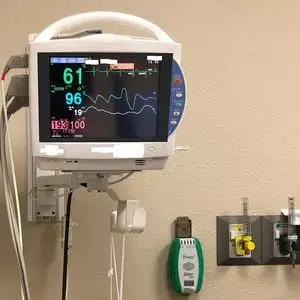- Home
- Medical news & Guidelines
- Anesthesiology
- Cardiology and CTVS
- Critical Care
- Dentistry
- Dermatology
- Diabetes and Endocrinology
- ENT
- Gastroenterology
- Medicine
- Nephrology
- Neurology
- Obstretics-Gynaecology
- Oncology
- Ophthalmology
- Orthopaedics
- Pediatrics-Neonatology
- Psychiatry
- Pulmonology
- Radiology
- Surgery
- Urology
- Laboratory Medicine
- Diet
- Nursing
- Paramedical
- Physiotherapy
- Health news
- Fact Check
- Bone Health Fact Check
- Brain Health Fact Check
- Cancer Related Fact Check
- Child Care Fact Check
- Dental and oral health fact check
- Diabetes and metabolic health fact check
- Diet and Nutrition Fact Check
- Eye and ENT Care Fact Check
- Fitness fact check
- Gut health fact check
- Heart health fact check
- Kidney health fact check
- Medical education fact check
- Men's health fact check
- Respiratory fact check
- Skin and hair care fact check
- Vaccine and Immunization fact check
- Women's health fact check
- AYUSH
- State News
- Andaman and Nicobar Islands
- Andhra Pradesh
- Arunachal Pradesh
- Assam
- Bihar
- Chandigarh
- Chattisgarh
- Dadra and Nagar Haveli
- Daman and Diu
- Delhi
- Goa
- Gujarat
- Haryana
- Himachal Pradesh
- Jammu & Kashmir
- Jharkhand
- Karnataka
- Kerala
- Ladakh
- Lakshadweep
- Madhya Pradesh
- Maharashtra
- Manipur
- Meghalaya
- Mizoram
- Nagaland
- Odisha
- Puducherry
- Punjab
- Rajasthan
- Sikkim
- Tamil Nadu
- Telangana
- Tripura
- Uttar Pradesh
- Uttrakhand
- West Bengal
- Medical Education
- Industry
Hemodynamic guided management reduces hospitalization due to early HF: Lancet

USA: A recent study in the journal The Lancet showed that hemodynamic-guided management of heart failure did not lower mortality rates and total heart failure events compared to the control group. However, a pre-COVID-19 impact analysis suggested a possible benefit of hemodynamic-guided management in the pre-COVID-19 period on the primary outcome, driven primarily by a lower rate of heart failure hospitalization than the control group.
Prof JoAnn Lindenfeld, Vanderbilt Heart and Vascular Institute, Vanderbilt University Medical Center, Nashville, TN, USA, and colleagues aimed to evaluate whether hemodynamic-guided management using remote pulmonary artery pressure monitoring could reduce heart failure events and mortality in patients with heart failure across the spectrum of symptom severity (NYHA functional class II-IV), including those with elevated natriuretic peptides but without a recent heart failure hospitalization.
The study was designed as a randomized arm of the hemodynamic guided management of Heart Failure (GUIDE-HF) trial. It was a multicentre, single-blinded study conducted at 118 centers in the USA and Canada. Following successful implantation of a pulmonary artery pressure monitor, patients with all ejection fractions, NYHA functional class II-IV chronic heart failure, and either a recent heart failure hospitalization or elevated natriuretic peptides (based on a-priori thresholds) were considered and assigned (1:1) to either hemodynamic-guided heart failure management based on pulmonary artery pressure or a usual care control group. Patients were masked to their study group assignment. The primary endpoint was a composite of all-cause mortality and total heart failure events at 12 months assessed in all randomly assigned patients. Safety was assessed in all patients. Pre-COVID-19 impact analysis for the primary and secondary outcomes was prespecified.
The results of the study were
• Between March 15, 2018, and Dec 20, 2019, 1022 patients were enrolled, with 1000 patients implanted successfully, and follow-up was completed on Jan 8, 2021. There were 253 primary endpoint events (0•563 per patient-year) among 497 patients in the haemodynamic-guided management group (treatment group) and 289 (0•640 per patient-year) in 503 patients in the control group (hazard ratio [HR] 0•88, 95% CI 0•74–1•05; p=0•16).
• A prespecified COVID-19 sensitivity analysis was conducted using a time-dependent variable to compare events before COVID-19 and during the pandemic suggested a treatment interaction (pinteraction=0•11) due to a change in the primary endpoint event rate during the pandemic phase of the trial, warranting a pre-COVID-19 impact analysis.
• In the pre-COVID-19 impact analysis, there were 177 primary events (0•553 per patient-year) in the intervention group and 224 events (0•682 per patient-year) in the control group (HR 0•81, 95% CI 0•66–1•00; p=0•049).
• The cumulative incidence of heart failure events was not reduced by hemodynamic-guided management (0•85, 0•70–1•03; p=0•096) in the overall study analysis but was significantly decreased in the pre-COVID-19 impact analysis (0•76, 0•61–0•95; p=0•014). 1014 (99%) of 1022 patients had freedom from a device or system-related complications.
Lidenfeld and team concluded "Haemodynamic-guided management of heart failure did not result in a lower composite endpoint rate of mortality and total heart failure events compared with the control group in the overall study analysis. However, a pre-COVID-19 impact analysis indicated a possible benefit of hemodynamic-guided management on the primary outcome in the pre-COVID-19 period, primarily driven by a lower heart failure hospitalization rate compared with the control group."
For further information: https://doi.org/10.1016/S0140-6736(21)01754-2
Medical Dialogues consists of a team of passionate medical/scientific writers, led by doctors and healthcare researchers. Our team efforts to bring you updated and timely news about the important happenings of the medical and healthcare sector. Our editorial team can be reached at editorial@medicaldialogues.in.
Dr Kamal Kant Kohli-MBBS, DTCD- a chest specialist with more than 30 years of practice and a flair for writing clinical articles, Dr Kamal Kant Kohli joined Medical Dialogues as a Chief Editor of Medical News. Besides writing articles, as an editor, he proofreads and verifies all the medical content published on Medical Dialogues including those coming from journals, studies,medical conferences,guidelines etc. Email: drkohli@medicaldialogues.in. Contact no. 011-43720751


